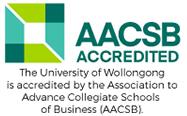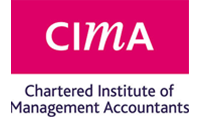- Home
- Degrees
- Undergraduate
- Business & Commerce
- Bachelor of Business (Accountancy)
Bachelor of Business (Accountancy)
Duration
3 Years Bachelor Degree
(24 subjects)
4 Years Bachelor Degree
with Integrated Freshman Year (32 subjects)
Classes commence
| September (Autumn) |
| January (Winter) |
| April (Spring) |
Yearly Fees*
AED 60,429 / USD 16,466
*VAT 5% inclusive
Note: Yearly fees will vary depending
on number of subjects enrolled in
The global trend of cross-border transactions and the free flow of international capital require businesses to undertake transactions or have international operations and subsidiaries in multiple countries. These create a sustained need for qualified professional accountants who must possess knowledge of the most recent accounting technologies, international financial reporting requirements, and a comprehension of complex business transactions and operations.
Our Bachelor of Business major in Accountancy degree (previously known as Bachelor of Commerce: Accountancy) has been designed to adhere to accounting professional bodies' requirements, the highest industry standards and forward-thinking practices. We create our accounting modules to reflect the critical techniques and skills used today in accounting positions around the globe. This focus on real-world issues and current demands ensures that the curriculum is relevant and applicable to the industry and job market.
Professional Bodies Recognition
Our Bachelor of Business in Accounting degree subjects are designed based on the International Financial Reporting Standards (IFRS) to ensure our graduates are ready for the global job market. The degree is accredited by the below-mentioned professional accounting bodies:
- Association of Certified Chartered Accountants (ACCA)
- Chartered Institute of Management Accountants (CIMA)
- Institute of Chartered Accountants in England & Wales (ICAEW)
- Certified Practising Accounting Australia (CPA Australia)
These recognitions enable students to get the maximum exemptions (9 out of 14 ACCA papers) when pursuing professional studies. Under the ACCA accelerated program, our students can pursue and sit for the professional exam while studying for our Bachelor of Business in Accounting degree. Hence, our students would reap the benefits of top-notch accounting education but will also gain the aptitude to decipher and apply solutions to real-life case studies and financial analysis, making the students ready for a global career in the field of accounting.
The curriculum would allow students to learn about responsible business management practices in alignment with UN Sustainable Development Goals (SDG). Students would also have the opportunity to pursue internship in companies to gain valuable practical experience, enhancing their employability.
Students also have the opportunity to graduate with a double major by choosing one more specialisation from the list of specialisations offered under Bachelor of Business. Students opting for double major are required to complete an additional 48 cp of subjects from the second specialisation.
Students who have excelled academically at school and meet our advance entry requirements can finish their bachelor's degree in three years, instead of the existing four-year programs. Any prospective student that does not directly qualify for an advance entry three-year program, is still able to enrol in any of our bachelor’s degree, through a one-year Freshman Year.
All applicants are required to complete a personal online interview set by the Faculty of Business, as an admission criteria. If required, in-person interviews may be arranged as a second step.
Admission requirements for UOWD depends on the type of high school curriculum you have followed. The requirements based on the most common high school curricula are listed below:
| School System | Bachelor Degree Advanced Entry (3 Years) |
Bachelor Degree Direct Entry (4 Years) |
|---|---|---|
| UAE Al-Thanawiyya Al-Aama |
N/A | Elite or Advanced Track 70%, General Track 75% |
| Arab Countries Al-Thanawiyyah Al-Aama |
N/A | 70% |
| American High School Diploma | Overall average grade of C (70% or 2.5/4.0) + SAT 1100 |
Overall average grade of C (70% or 2.5/4.0) |
| Bangladesh HSC |
GPA of 4.0 / 5.0 | GPA of 3.0 / 5.0 |
| Brazil Brazil Higher Secondary Certificate |
N/A | 60% |
| British GCE Curriculum | Minimum 5 IGCSE/GCSE subjects and Minimum of “CCD” in A levels |
Minimum 5 IGCSE/GCSE subjects and 2AS/ 1A level subject(s) |
| Chinese Senior High School | 80% | 60% |
| Colombia Título de Bachiller Académico |
N/A | 3 out of 5 or 6 out of 10 |
| International Baccalaureate Diploma | 25 Points | 21 Points |
| India CBSE & ICSE, Grade 12 |
65% | 50% |
| Iran Pre-University Certificate |
14 | 11 |
| Japan Upper Secondary School Diploma |
3.8 out of 5 | 2.5 out of 5 |
| Kenya | 60 | 31 |
| Mexico | N/A | 6 out of 10 |
| Nepal School Leaving Certificate Examination |
3 out of 4 | 2.3 out of 4 |
| Nigeria WAEC & NECO |
N/A | Minimum of 7 subjects with no more than 1 “Pass” |
| CIS Countries Attestat |
N/A | Average 3/5 |
| South Korea CSAT |
77.5% | 70% |
Notes:
- All students applying for these programs are required to have an EmSAT in Mathematics with a score of 600 or equivalent.
- Students with qualifications from other curriculum should contact the Student Recruitment and Admissions department at UOWD to determine their eligibility.
- All students applying from non UAE MoE curriculum must provide an equivalency of their Secondary School Certificate from the Ministry of Education, UAE; stating the completion of Grade 12.
- A student who does not satisfy the criteria for Equivalency of Secondary School Certificate, may be subject to conditional admission, based on receiving a Letter of No Objection to Conditional Admission issued by the Ministry.
At UOWD, all classes are taught in English and in order to enrol in a bachelor’s degree you will need to submit one of the following certificate of English language proficiency:
| English Language Testing | Bachelor Degree Advance Entry (3 Years)* |
Bachelor Degree Direct Entry (4 Years)** |
|---|---|---|
| IELTS Academic |
Overall IELTS (Academic) score of 6.0 & Minimum score of 6.0 in Reading & Writing Minimum score of 5.0 inListening & Speaking |
Overall IELTS (Academic) score of 5.0 & Minimum score of 5.0 in Reading & Writing |
| TOEFL Internet-based |
79 with not less than 20 in Writing, 18 in Reading, 17 in Listening, 16 in Speaking |
61 |
| TOEFL Computer based |
213 with a 4.0 TWE/Essay Writing |
173 |
| TOEFL*** International paper based |
550 with a 4.0 TWE/Essay Writing |
500 |
| EmSAT Achieve – English |
1400 | 1100 |
Notes:
* Students with a minimum overall score of 6.0 in academic IELTS and no more than one score (either in reading or writing) between 5.0 and 6.0 will be given the opportunity to complete a remedial subject in the first semester as a condition for progression.
** Students with a minimum overall score of 6.0 in academic IELTS (or equivalent) and a minimum score of 6.0 in reading and writing(or equivalent) are eligible for advanced standing for English Language subjects.
*** Students admitted under this criterion must complete the test at AMIDEAST.
If you are seeking advanced standing status, you will need to submit an official academic transcripts showing all courses studied and the grades obtained, syllabus details (including information on course content) for the courses you have successfully completed and an explanation of the grading system.
To make an application for your chosen program, complete the online application form and submit it along with all your supporting documentation (see below) prior to the application deadline.
Late applications may be accepted subject to the availability of places but applicants are encouraged to apply as early as possible.
Please ensure that all these documents accompany your application for admission form submittal:
- An original or certified copy of your secondary school records
- A Statement or Certificate of Completion of secondary school
- Proof of your English language proficiency
(Note: Results from IELTS & TOEFL tests may be sent to the University directly from the IELTS or TOEFL testing centres quoting the UOWD institution code IELTS: AE109 / TOEFL: 7907)
- UAE ID (if applying from within the UAE)
- A copy of your passport (and Residence Visa, if resident in the UAE).
Additionally, if you are seeking advance standing in your chosen program:
Certified copies of official academic transcripts showing all courses studied and grades obtained, syllabus details (including information on course content) of the courses you successfully completed and an explanation of the grading system.
All applicants for admission who have completed the Thanaweya Al-Amma must get their certificates attested by the UAE Ministry of Education.
Applicants from all other curriculum, who have completed their high school from UAE, are required to obtain equivalency of their high school qualifications from the UAE Ministry of Education.
In these circumstances, you will be provisionally admitted to the University and permitted to commence the first semester of study, subject to you obtaining the required attestation/equivalency.
You must have your secondary school records and Certificates of Completion certified by:
- The issuing Board of Secondary Education OR a recognised authority for secondary education
- The Ministry of Foreign Affairs in the host country
- The UAE Embassy in that host country OR the Embassy of the host country in UAE must attest the authenticity of the documents and attestations and the UAE ministry of Foreign Affairs.
In special cases where complying with conditions (2) and (3) are not feasible, the certificates may be verified against originals by Embassies in the UAE and the UAE Ministry of Foreign Affairs.
In these circumstances, you will be provisionally admitted to the University and permitted to commence the first semester of study.
If you are unable to secure the attestations as outlined above you will be asked to sign a “Consent to Provide Documents” form agreeing to secure the equivalency. You will be permitted to commence your studies at UOWD, but will be given a maximum of one semester to obtain the attested certificate(s). UOWD reserves the right to take appropriate action against any applicant who cannot secure the appropriate documentation in this time, which may result in the termination of the student’s enrolment at UOWD.
For more information or assistance on attesting documents from outside UAE, click here.
Program Structure
To qualify for the Bachelor of Business (Accountancy), a candidate shall accrue an aggregate of at least 144 credit points comprising of subjects from a common business subjects, specialised subjects required for major, general electives, general education subjects and a final year project.
Choose 1 UAE Studies Subject
Compulsory Arabic Language Subject or Challenge Test
General Elective Requirement
- Module 1: Design Thinking
- Module 2: Entrepreneurship
- Module 3: Growth and Leadership
Capstone Subject
Choose Any 3 Business Subjects as Elective
Click here to view all business subjects
Program Outcomes
Typically, Bachelor of Business in Accounting graduates will be able to prepare financial statements in accordance with the International Financial Reporting Standards (IFRSs). This program will prepare the graduates to gain skills and knowledge on the application of accounting software and technology to prepare financial statements and financial forecasts. Graduates would be able to make strategic business decisions by evaluating and analyzing the financial health and forecast of the organization. They will also be able to make suitable investment decisions with the financial and non-financial information.
Completing this program will give several exciting career opportunities that include roles such as Forensic Accountant, Management Accountant, Chartered Accountant, Internal Auditor, Budget Analyst, Payroll Manager, Corporate Controller, Financial Analyst and Financial Consultant. The degree would open opportunities for employment in both public and private sector across the world.
Accreditation and Recognition
All degrees at the University of Wollongong in Dubai are accredited by the Commission for Academic Accreditation (CAA) of the UAE Ministry of Education and are licensed by the Knowledge and Human Development Authority (KHDA). In addition, the degree is quality assured by UOW, which is registered with the Tertiary Education Quality and Standards Agency (TEQSA), the national regulator of the higher education sector in Australia.
Also, all business degrees of the University of Wollongong are accredited by The Association to Advance Collegiate Schools of Business (AACSB).
Students will be issued a UOW Australia degree upon graduation.
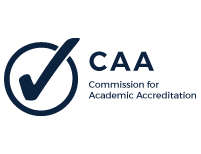
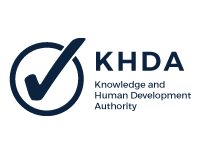
Professional Accreditation
Association to Advance Collegiate Schools of Business (AACSB)
The Association to Advance Collegiate Schools of Business (AACSB) provides an international seal of approval for business programs that ensures the educational needs of students are met through high quality, continuous improvement and excellence in education. This globally recognised accreditation has been awarded to only the top five percent of the world’s business schools.
ACCA
The Bachelor of Business (Accountancy) has been accredited by the UK’s Association of Chartered Certified Accountants (ACCA) for exemption from 9 out of 14 ACCA papers (the maximum exemption that can be achieved at bachelor's level). On graduation from this program, you can gain professional certification from the ACCA to become a Chartered Accountant.
CIMA
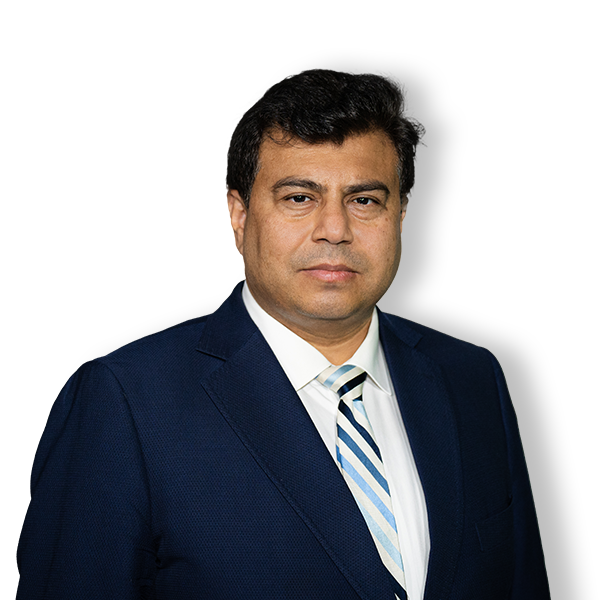
Dr Haroon Khan
Associate Professor
(Discipline Leader - Accounting and Finance)
Dr Haroon Khan is an associate Professor and the Finance Program Director in the University of Wollongong in Dubai.
He received his PhD in 2011 from IAE, Graduate School of Management, Aix-en-Provence, & ESSEC, Paris, France, with specialisation in Strategic and Entrepreneurial Finance.
Read MoreFaculty
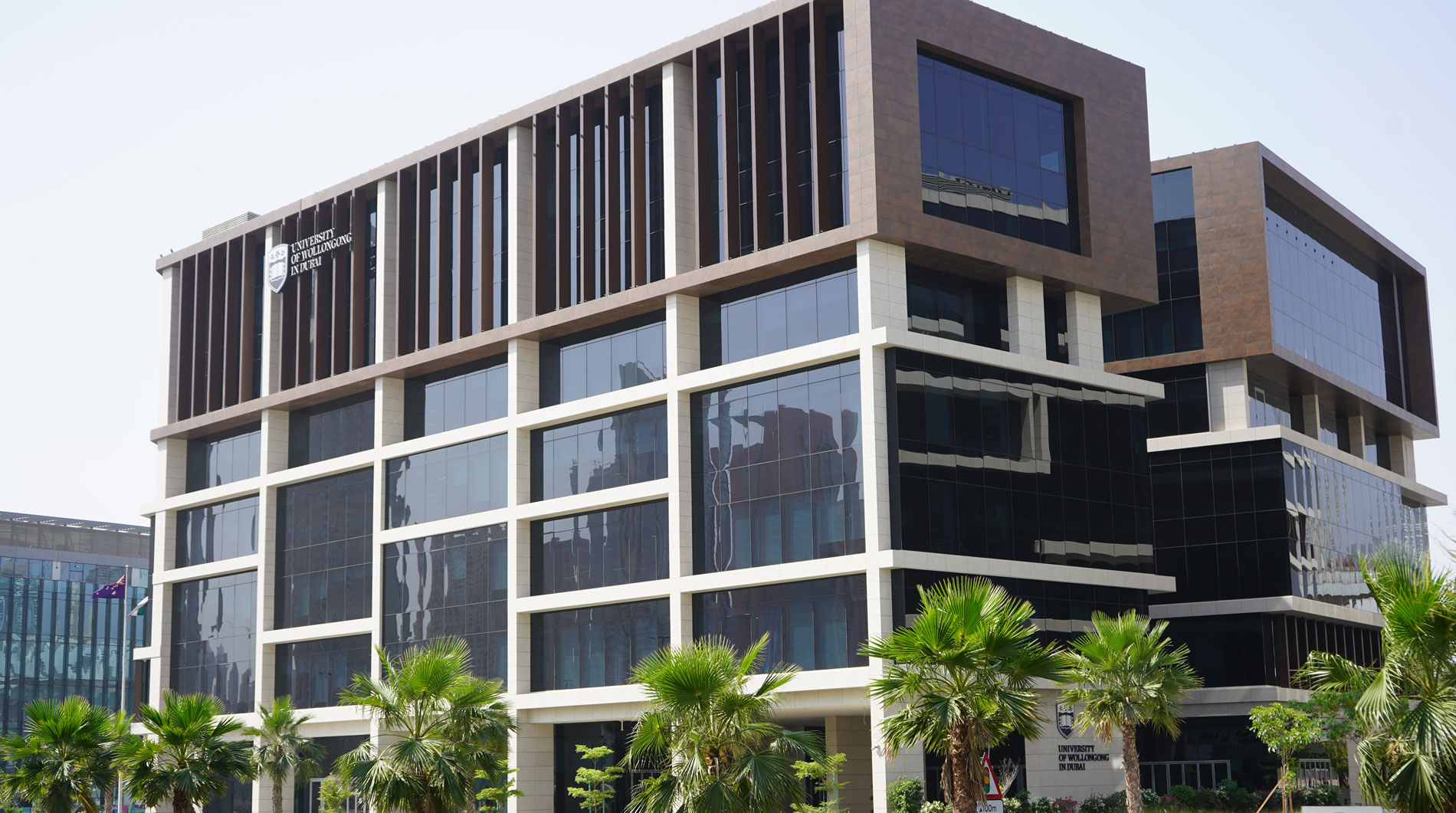
Open Day
Attend our next Open Day on Saturday, 27 April 2024.
Join our experts to learn more about our degrees and how you can enrol at UOWD.



